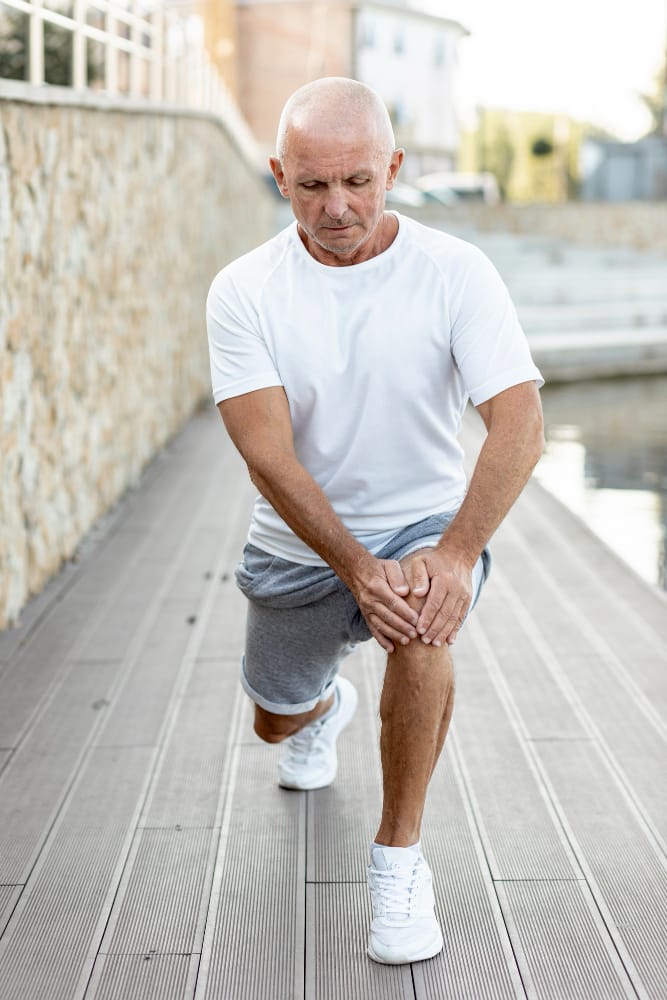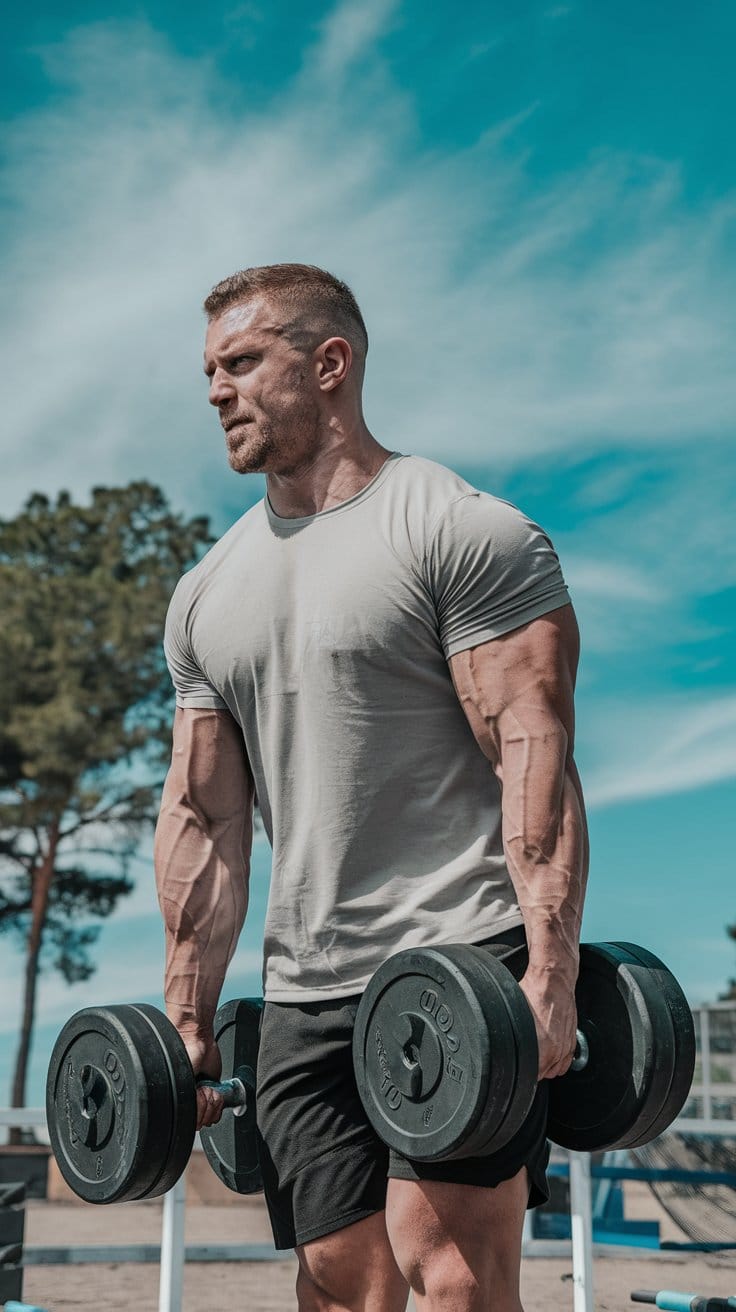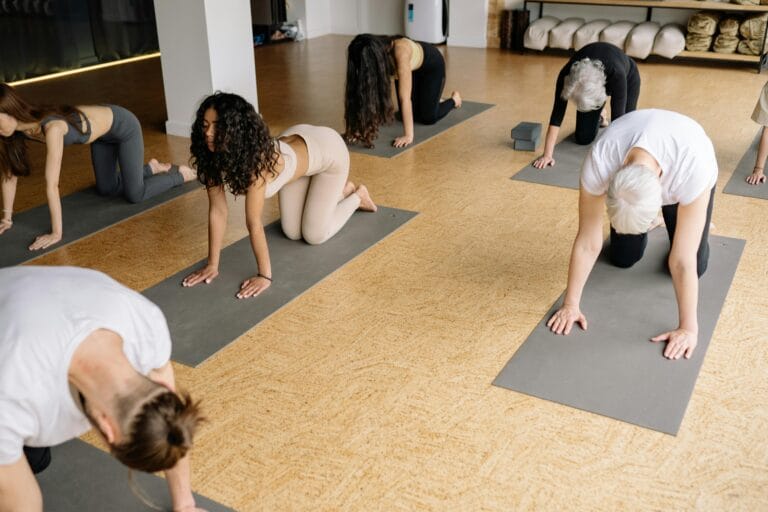FREE SHIPPING OVER $50
From Wheelchair to Walking: 7 Exercises That Saved My Joints at 60
At 60, I was nearly immobile. Years of joint pain, stiffness, and inflammation had left me relying on a wheelchair just to get around the house. Doctors said it was “just part of aging.” Friends suggested surgery. But deep down, I wasn’t ready to give up on moving again—not yet.
So, I took a different route: movement. Specifically, targeted joint-friendly exercises designed to build strength, improve flexibility, and reduce inflammation—without pushing my body past its limits. Today, I’m walking again. No cane. No surgery. Just a daily commitment to the right kind of movement.
My Turning Point: Why I Ditched the “Just Rest” Advice

Let’s get one thing straight: rest isn’t always the answer to joint pain. In fact, prolonged inactivity can make your joints stiffer, your muscles weaker, and your pain worse.
I’d spent months sitting and avoiding movement because I was afraid of making things worse. But what actually changed everything was learning that gentle, consistent motion can nourish joints, improve circulation, and reduce stiffness.
So instead of chasing temporary relief, I started focusing on long-term recovery through low-impact exercises.
Understanding Joint Pain: What Really Helps
Before I get into the exact exercises, let’s talk briefly about what your joints actually need to stay healthy:
- Synovial fluid: Movement helps lubricate your joints naturally.
- Strong muscles: Supporting muscles reduce the load on your joints.
- Flexibility: Stretching helps maintain range of motion and alignment.
- Circulation: Regular movement improves nutrient delivery to joint tissue.
That’s why the key is to move—but move intelligently.
The 7 Exercises That Saved My Joints
These exercises were approved by my physical therapist and adjusted to fit my personal limits. I started slow—just a few minutes per day—and built up from there. You don’t need expensive equipment. Just a yoga mat, a chair, and the willingness to try.
1. Chair Squats: Builds Leg Strength Without Impact
Chair squats are perfect if you have trouble standing for long. Sit on the edge of a chair with your feet shoulder-width apart. Slowly stand up using your legs (not your hands), then sit back down with control.
Why it works: Strengthens the quads and glutes, which support the knees and hips. This movement also mimics everyday motions like getting up from a couch.
2. Seated Marches: Boosts Hip Mobility and Blood Flow
While seated, lift one knee at a time as if you’re marching. Engage your core and try to keep your back straight. Do this for 30 seconds, rest, then repeat.
Why it works: Improves circulation and hip flexibility. This exercise also activates your core without stressing your lower back.
3. Wall Push-Ups: Strengthens Upper Body Without Strain
Stand facing a wall, arms extended. Lean forward and push yourself away from the wall, like a standing push-up. Keep your body in a straight line.
Why it works: Builds shoulder, arm, and chest strength without putting pressure on wrists or shoulders like floor push-ups do.
4. Cat-Cow Stretch: Restores Spine Flexibility
Start on your hands and knees (or modify in a chair). Inhale, arch your back and lift your head (cow). Exhale, round your back and tuck your chin (cat). Repeat slowly.
Why it works: Mobilizes the spine and reduces back stiffness. Also engages the core gently and improves posture.
5. Standing Leg Swings: Opens Up Tight Hips
Hold onto a chair or wall for balance. Swing one leg forward and backward gently. Do 10 swings, then switch legs.
Why it works: Encourages hip mobility and loosens the muscles around the hip joint. Great for improving your gait.
6. Heel-to-Toe Rock: Strengthens Ankles and Improves Balance
While standing, slowly rock from your heels to your toes. Engage your calf muscles and stay steady. Hold onto a wall if needed.
Why it works: Enhances ankle stability, which is crucial for walking and reducing falls. Also helps stimulate circulation in the lower legs.
7. Water Walking: Low-Impact Full-Body Exercise
If you have access to a pool, walking laps in waist-deep water provides resistance without joint impact.
Why it works: Water supports your body weight, relieving pressure on joints while allowing for natural movement. This was the game-changer for me in regaining mobility.
My Weekly Routine: Consistency Over Intensity
One of the biggest lessons I learned is that you don’t need to “go hard” to see results—you just need to stay consistent.
Here’s the weekly routine I followed:
- Daily (10–20 mins): Seated marches, chair squats, cat-cow stretch
- 3x per week: Water walking (20–30 minutes)
- Every other day: Wall push-ups, leg swings, heel-to-toe rock
I started with just 10 minutes a day. Within two weeks, I noticed less stiffness. After two months, I was walking short distances without pain. At the six-month mark, I no longer needed the wheelchair.
Other Changes That Supported My Recovery
Exercise alone didn’t do it all. I made some lifestyle tweaks that helped my joints bounce back faster:
- Anti-inflammatory diet: I cut back on processed foods, sugar, and refined carbs. Added more omega-3s (salmon, flaxseed), leafy greens, berries, and turmeric.
- Hydration: Joints need water! I aimed for at least 8 cups a day.
- Supplements (with medical approval): I took glucosamine, chondroitin, and vitamin D3, which may help joint function.
- Daily stretching: Even five minutes of light stretching in the morning helped loosen everything up.
Final Thoughts
If you’re over 60, dealing with chronic joint pain, or facing reduced mobility—don’t give up. You don’t have to become a gym rat or push through pain. What you do need is a consistent, gentle approach to movement that works with your body, not against it.
I went from a wheelchair to walking in less than a year by committing to these 7 exercises and staying patient. It’s not about quick fixes—it’s about rebuilding your strength, flexibility, and belief in your body.
You’ve got more control than you think. Start slow. Stick with it. And don’t let pain be the final word on what your body can do.
Related Articles
- The 7 Workouts Ruining Your Progress (90% of People Do It, Says Physical Therapist)
- This Old-School 20-Rep Squat Routine Is Still the Most Savage Leg Workout Ever
- Build Massive Legs in 30 Minutes—This Routine Hits Quads, Hamstrings, and Calves Hard
- Old-School Strongmen Used This One Exercise to Carve Abs—Still Works Like Magic
- Build Serious Muscle & Strength With Just 4 Lifts—This 3-Day Program Is All You Need







